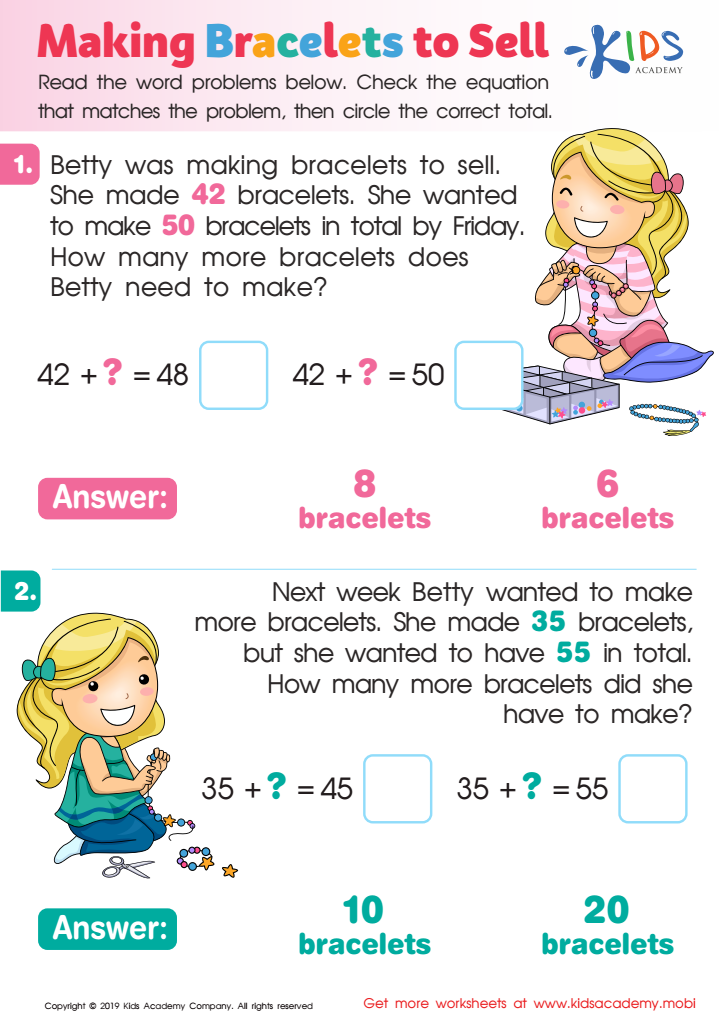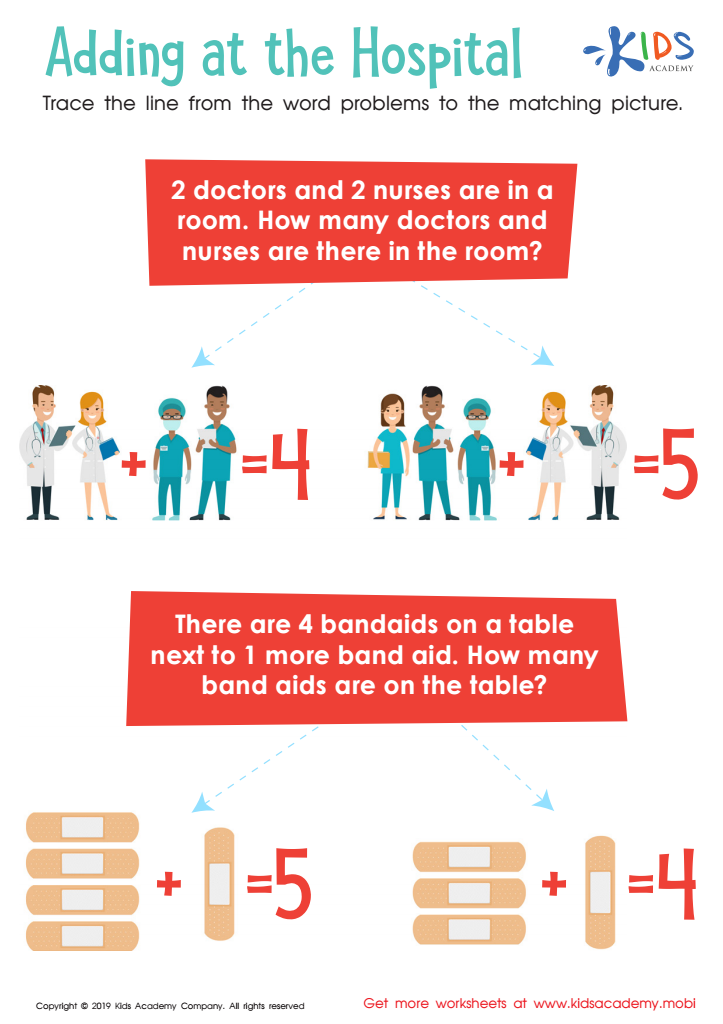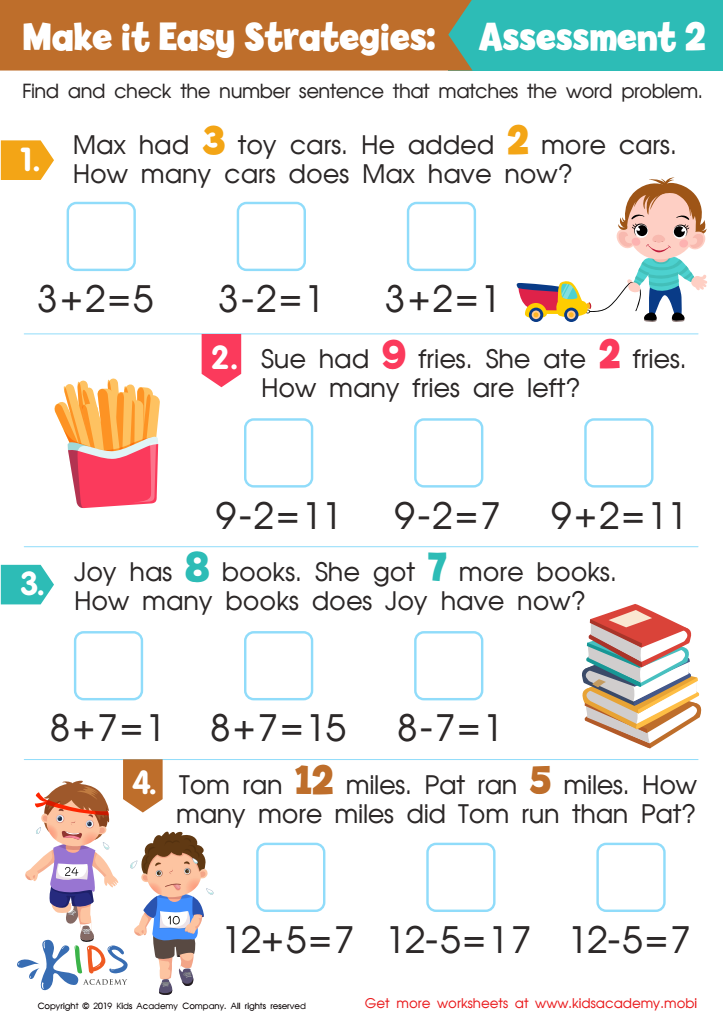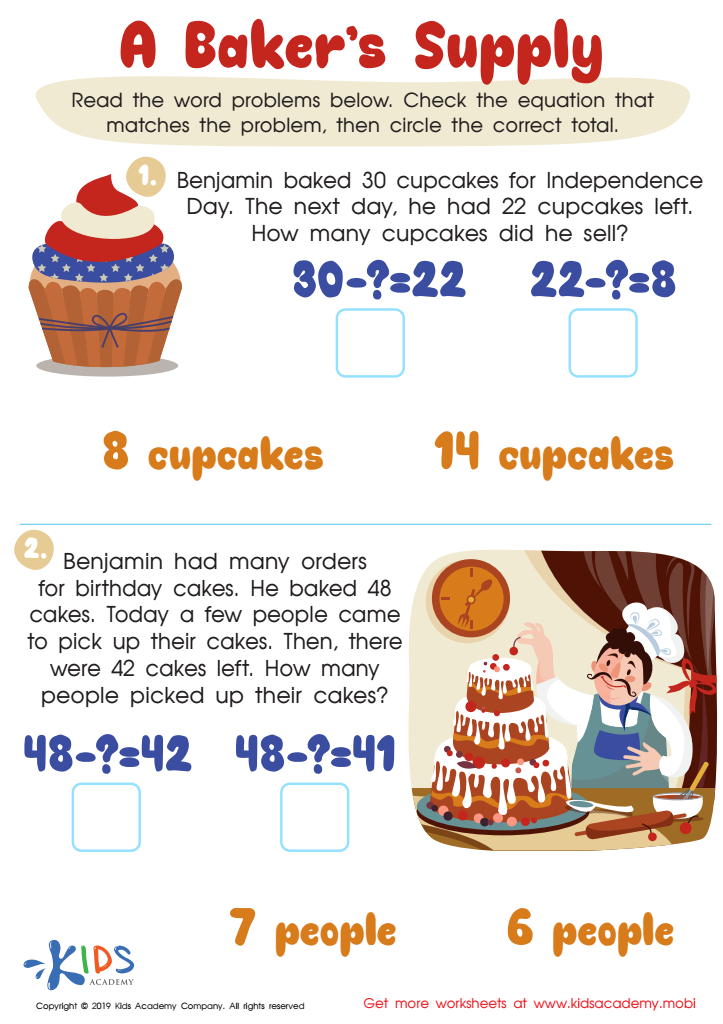Problem-solving abilities Word Problems Worksheets for Ages 3-7
4 filtered results
-
From - To
Enhance your child’s problem-solving abilities with our engaging word problems worksheets designed specifically for ages 3 to 7. These worksheets feature age-appropriate scenarios that stimulate critical thinking and encourage children to develop their analytical skills. Through interactive and fun exercises, kids will learn to approach math challenges creatively and accurately. Our carefully designed activities promote reasoning and logical thinking while making learning enjoyable. Ideal for both home and classroom settings, these worksheets provide a solid foundation in mathematics, setting your child up for academic success. Discover the joy of learning with our problem-solving abilities word problems worksheets today!


Making Bracelets to Sell Worksheet


Adding at the Hospital Worksheet


Make it Easy Strategies: Assessment 2 Worksheet


A Baker's Supply Worksheet
Problem-solving abilities, particularly in word problems, are crucial for children aged 3-7 as they lay the foundation for critical thinking and analytical skills. During these formative years, children learn how to identify and understand problems, breaking them down into manageable parts. This skill not only enhances their mathematical understanding but also supports their overall cognitive development.
Engaging with word problems encourages children to think creatively and develop flexibility in their approach. It allows them to relate mathematical concepts to real-life situations, fostering a sense of relevance in what they learn. For teachers, incorporating problem-solving into the curriculum enables them to address various learning styles and promote collaborative learning.
Parents also play an instrumental role by reinforcing these skills at home, engaging in activities that promote logical reasoning and perseverance—qualities vital for lifelong learning and other subjects. By investing time in developing problem-solving abilities in young children, both parents and teachers contribute to building resilient learners capable of facing future challenges. Furthermore, these foundational skills correlate with academic success, emphasizing the importance of problem-solving in early education.
 Assign to My Students
Assign to My Students
















